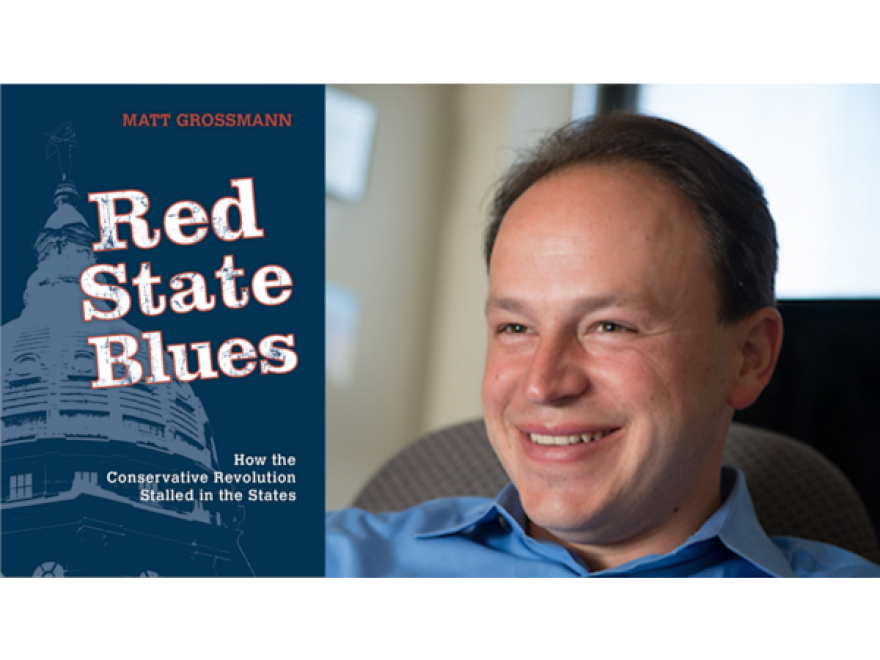Matt Grossman is director of the Institute for Public Policy and Social Research and an associate professor of political science at Michigan State University and he's written a new book titled Red State Blues.
The political divide between Democrats and Republicans seems to be the most contentious in recent years, but in his book, Red State Blues, he presents findings that might put some liberals at ease.
As Republicans gained more power and control in Congress over the last 25 years, democratic lawmakers and constituents alike thought that the right-wing policies would be enacted and have an adverse effect on the nation’s economy, environment, social issues and foreign policy.
In Red State Blues, Grossmann discusses what he found after closely tracking how the Republican resurgence influenced policy and socioeconomic outcomes across all 50 states. What he found was that while Republicans have successfully maintained power, they have not substantially altered the nature or reach of government.
“Most of my prior research had been on national politics and I had regularly observed that Republicans were kind of unable to achieve their professed desire to reduce the size and scope of government when they were put in charge,” says Grossmann. “And people kept saying, ‘Well, what about Scott Walker or Sam Brownback in Kansas and Wisconsin? Is something different going on at the state level?’ I wanted to look. And then the second thing is that I have this institutional role here at MSU where we do a whole lot with the state government and I got to observe up close what Republicans were doing under unified control here in Michigan. And I wanted to see how widely what we observed here applies nationwide.
“I was surprised by the limited impact of the policies that do pass. It's not that policy has no impact, but it's really hard to show that a red state or a blue state does better on some major indicator like income growth or population growth or crime or family structure. We often think we're choosing between California and Texas, the red state model and the blue state model. But you think about it for a few seconds, you realize there are quite a few other differences between California and Texas. It might not just be the party in power that's producing those differences. And that's what I found. It really is hard to show that it's the actual policies put forward by Republicans and Democrats that have made those states or other states different.
“The big thing is that what you hear about in campaigns are kind of the parties’ ideal visions. That doesn't mean that they're going to be able to actually implement those policies when they get elected. We have the sense that we're debating between the Republican division and the Democratic division and as long as we get full control, our side wins and we're finally going to pass all of these policies and put it in our direction. And that tends not to happen on average. Putting one political party in control rather than the other tends to move policy about one percent of the way from one extreme to the other. So you do see real change, but it's nowhere near the level of change that you might expect from hearing, say, a gubernatorial debate between the two political parties where they're going to say they disagree on everything But they're actually usually not able to move policy completely in their direction.”
Grossmann’s previous book is titled Asymmetric Politics.
“We really do have two sides in this country. The voters know which side they're on for the most part and that colors everything else. And that's fairly unique. But I wouldn't say that we have particularly extreme issue positions compared to history. There are still a lot of people in the middle on most policy issues. In that respect, I wouldn't say that we're all extremists now. It's just that it's quite easy to figure out which side you're on in American politics right now and people tend to pick a side.”
Caroline Brooks contributed to this report.
MSU Today airs Sunday mornings at 9:00 on 105.1 FM and AM 870.

